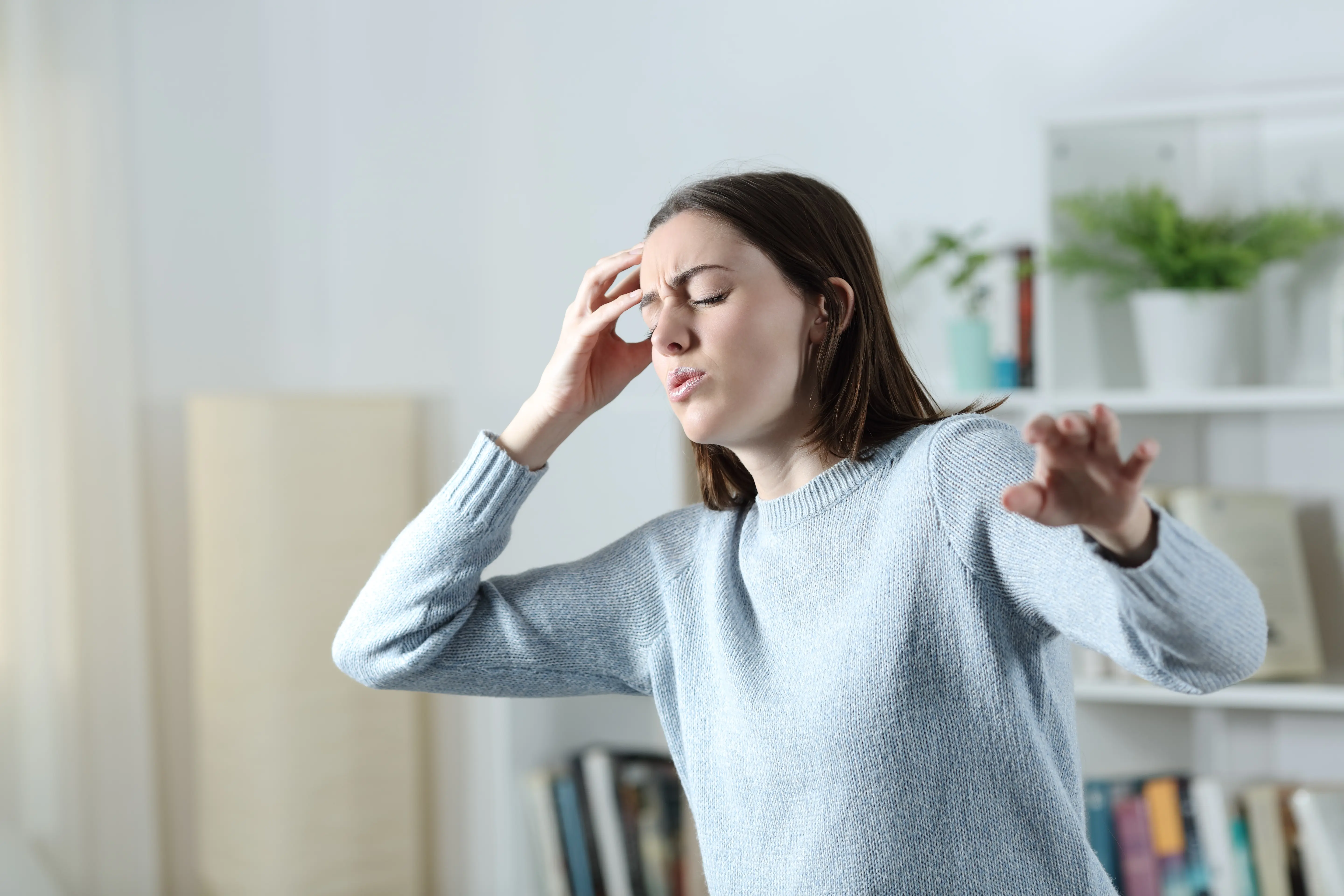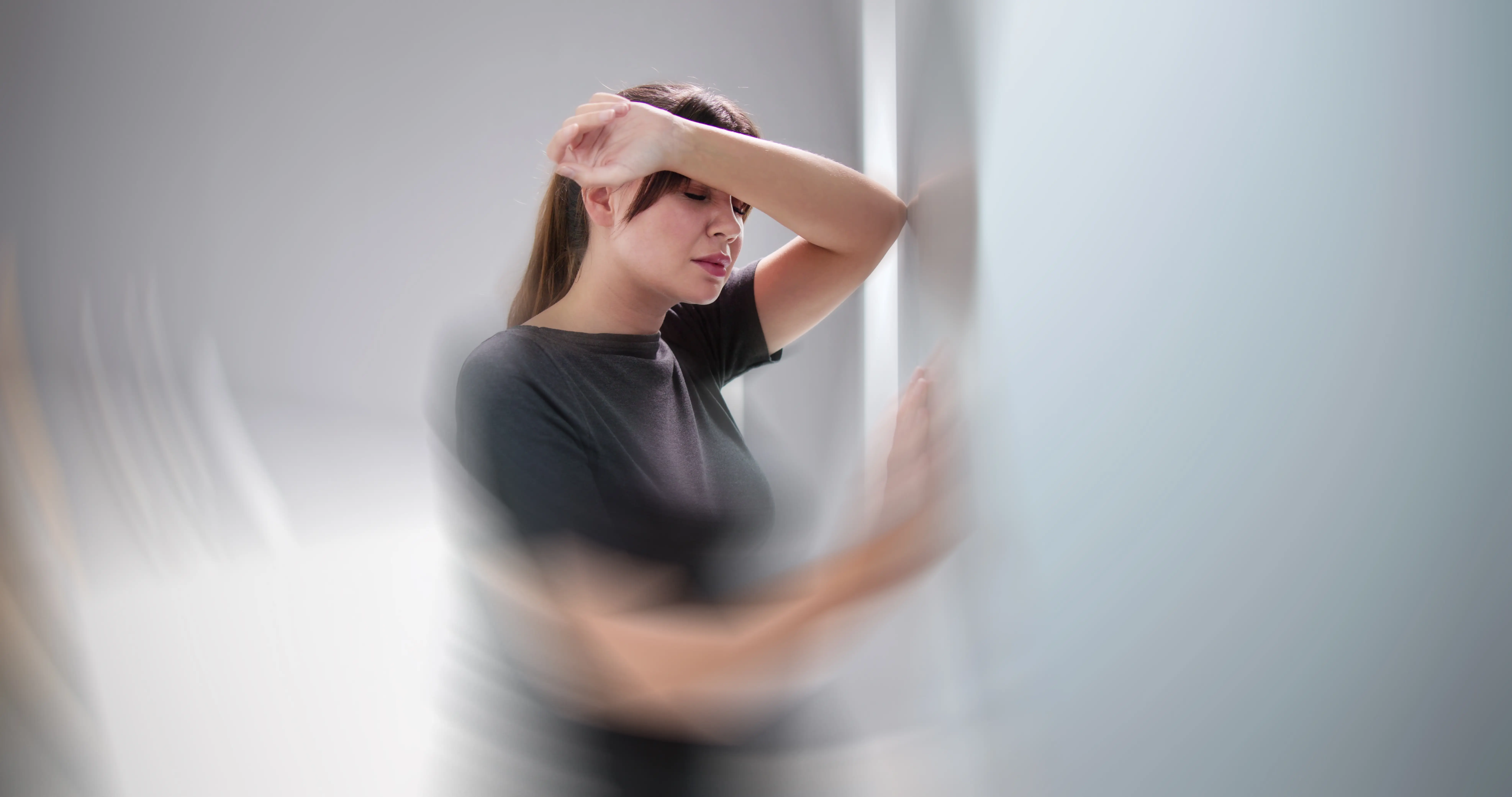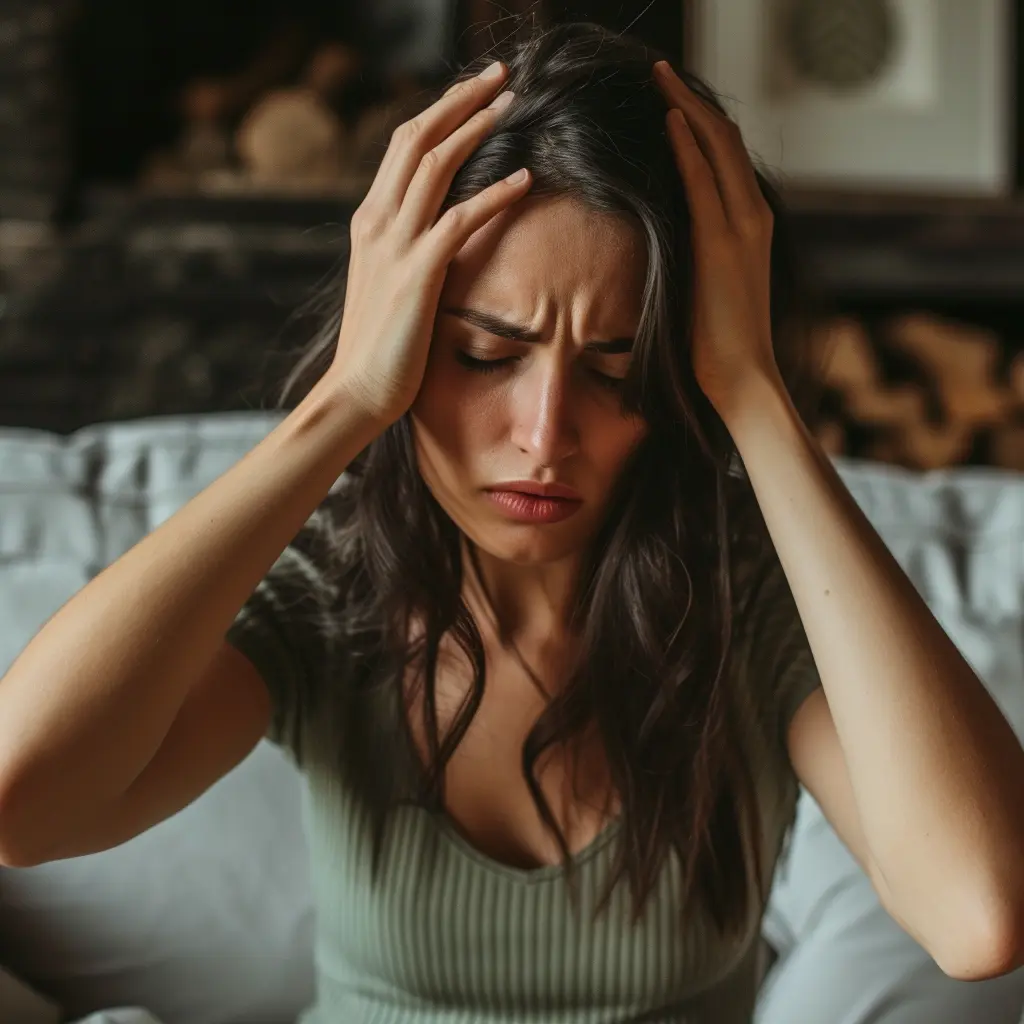
What is Vertigo?
Vertigo is commonly described as dizziness and is characterised by a feeling of movement or spinning. Being lightheaded is different from experiencing vertigo. Individuals with vertigo experience a sensation of spinning or movement, as if the world is spinning around them. This sensation can range from barely noticeable to severely impacting your ability to maintain balance and perform daily tasks. The most common cause is a problem with your inner ear. Even if you have a brain condition, like a tumour or stroke, you can still develop it. The onset of vertigo can be sudden, and it can last for a few seconds or an extended period. Those with severe vertigo may experience constant symptoms that can last for days, greatly impacting daily activities. When vertigo and ear imbalance strike, they can disrupt the flow of our daily activities, leaving us feeling unsettled. Ayurveda provides a comprehensive approach to treating vertigo, addressing not just the symptoms but also the underlying causes.
Feel free to contact us for Ayurvedic Treatment for Vertigo in Kerala

Ayurvedic Treatment for Vertigo in Kerala
According to Ayurveda, Bhrama is the term that has the closest resemblence to the symptoms of Vertigo. Bhrama refers to frequent episodes of random rotation or swaying that are caused by the imblance in the Vata and Pitta dosha.. The diagnosis of the underlying cause of vertigo in Ayurveda involves the assessment of an individual’s dosha imbalance by a practitioner. By conducting an Ayurvedic diagnosis, it becomes possible to create a treatment plan that is tailored to address the specific needs of the patient. This might include examining the pulse, analysing the tongue, and asking detailed questions about the patient’s lifestyle and habits. According to Ayurveda, vertigo is seen as an imbalance in the body’s three doshas: Vata, Pitta, and Kapha. The Ayurvedic treatment for Vertigo takes into account the overall health of a person by giving importance to their diet, lifestyle, and herbal treatments.
Ayurveda provides a secure and effective remedy for vertigo that restores harmony in both the body and mind. The goal of the treatment is to calm the imbalanced doshas in the body using targeted Ayurvedic panchakarma procedures and herbal decoctions that address the underlying cause of the condition. The treatment plan is tailored to meet the specific needs of the patient and may involve techniques such as head massages, deep breathing exercises, or muscle massages to enhance oxygen circulation in the body. Ayurvedic decoctions containing herbal extracts from plants with regulatory properties are known to alleviate symptoms of vertigo. Patients are also encouraged to practise yoga asanas that improve blood circulation, rejuvenate the body and mind, and help achieve inner balance. Following customised diet plans is crucial for patients to achieve better results and recover faster from their condition. The diet plan restricts the consumption of fried, spicy, fermented, and high amounts of beverages, dairy, and meat products. This is because excessive intake of these foods can disrupt the body’s dosha balance.
At Ayur Bethaniya, our treatment plan focuses on restoring balance in the body by pacifying the doshas responsible for its imbalance. In addition to improving overall immunity, the treatment procedures also rejuvenate and enhance the body’s performance and functions. Our treatment approach focuses on eliminating all issues that disrupt the body’s normal functioning.
Contact us for your queries regarding Ayurvedic Treatment for Vertigo in Kerala.
Need to know about the ayurvedic treatment for Stroke and Multiple Sclerosis?


